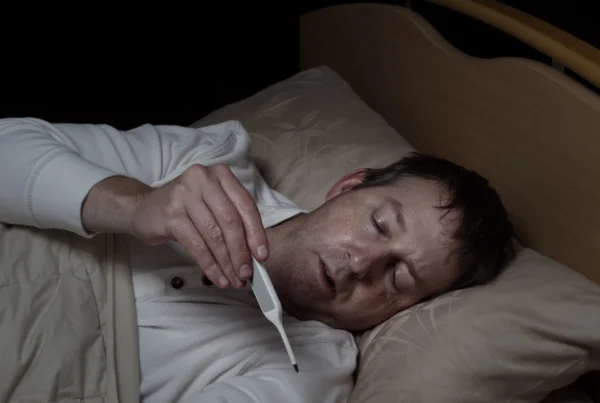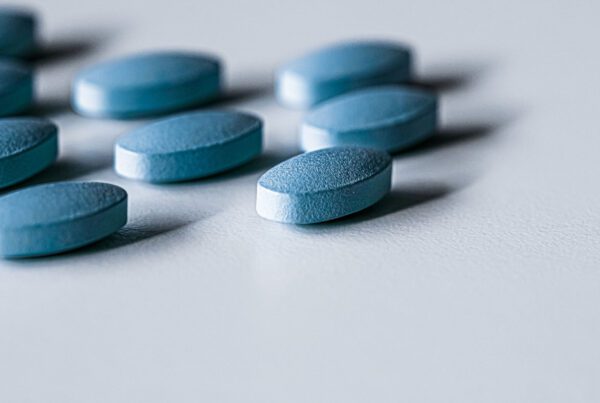
Table of Contents
Mixing drugs and alcohol is never a good idea if you do not know what the interaction could be. Certain drugs, particularly anti-depressants and anti-anxiety drugs, can exacerbate the effects of alcohol, making a person much more intoxicated than planned. Additionally, mixing certain drugs and alcohol can quickly become addictive and cause serious bodily harm.
Not only are certain combinations like Xanax and alcohol addiction, but they can worsen anxiety and depression symptoms, cause internal organ failure, and have extremely negative impacts on various functions in the body. Mixing Xanax and alcohol can cause your mental health to worsen, damage your social life, and negatively affect many aspects of your life.
Xanax can be addictive to many people, so when used with alcohol, a person’s chance of becoming addicted to the combination increases dramatically. In addition, this combination can even cause overdoses and fatalities. For these reasons, it is best to avoid mixing Xanax and alcohol completely.
However, suppose you find yourself in a situation where you think you may have an addiction to mixing Xanax and alcohol. In that case, getting the correct information and helpful guidance on how to safely stop mixing these two substances is important. Please read more about the side effects of mixing Xanax and alcohol, the dangerous consequences, and more.
Side Effects of Xanax & Alcohol
Taking Xanax and alcohol has become somewhat of a popular cocktail. Both substances increase the effects of the other, so the user feels a more extreme sensation. However, both of these substances also suppress your central nervous system and your respiratory system. This can lead to comas, overdoses, or even death.
One of the biggest side effects of mixing Xanax and alcohol is the depressant aspect of their effects. Both are depressants that slow down things happening in the body. Your heart rate decreases, your reflexes get slower, breathing becomes shallower, your motor skills slow, and so on.
Thus, when they are combined, they can slow down the body’s functions to a damaging or fatal point.
Your liver breaks down Xanax and alcohol, so when you take both at once, your liver has to work harder than it normally does to break down the substances. Unfortunately, this also means that it takes longer for your body to get rid of the different substances, which means toxic quantities of alcohol and Xanax can build up in your body, causing an overdose.
Another common side effect of combining Xanax and alcohol is exaggerated sedation, when you are so intoxicated by these substances that you can easily lose consciousness, stop breathing, and die.
Regularly mixing Xanax and alcohol can cause severe memory loss of the times when the user has been under the influence and issues with memory in general. This can damage your academic life, social life, and career. Additionally, you can get liver cirrhosis, which sometimes can require a liver transplant if deadly enough.
Risks & Dangers of Mixing Xanax With Alcohol
Low doses of Xanax with small amounts of alcohol are generally considered not to have the potential for intense with severe reactions. However, the higher the dose of Xanax and the more alcohol consumed, the higher the risk is for a severe or dangerous interaction.
Another danger of mixing Xanax and alcohol is the inconsistencies of reactions. Some people may take a low dose of Xanax, have half of a drink, and have a severe life-threatening reaction. Other people may be able to have 10 drinks and a high dose of Xanax and not have any reaction at all. You may be able to have 10 drinks and a high dose of Xanax one day but try to get another time, and you could have a life-threatening reaction.
It is impossible to predict how your body is going to react to different combinations of dosages of Xanax and servings of alcohol. However, it is generally assumed that drinking more alcohol and taking a higher dose of Xanax can contribute to a more life-threatening interaction between the two.
Another danger of mixing Xanax and alcohol is how the liver metabolizes both substances. The liver metabolizes Xanax and alcohol at different rates and prioritizes the metabolization of alcohol first. This means that a toxic amount of Xanax can quickly build up in the bloodstream because it is not being processed by the liver and disposed of.
This puts a user at a higher risk of an overdose or having a lethal amount of Xanax in their bloodstream, which can lead to coma, seizures, loss of consciousness, and death.
Some symptoms of mixing alcohol and Xanax are:
- Feeling like you are in an overly relaxed state, reduced anxiety
- Dizziness, lethargy, exhaustion, or fatigue
- Moodiness, anger, irritability towards others
- Cognitive or behavioral issues
Another danger of mixing Xanax and alcohol is that both substances reduce the amount of blood flow to the brain because they are both depressants. This can cause an influx in inhibitory neurotransmitters which in turn means that a person will begin to experience severe problems with critical thinking, problem-solving, impulse and self-control, judgment, logic and reasoning, and planning. This can also affect physical movement and coordination.
The higher inhibitory neurotransmitters mean users often have blackouts or memory gaps when taking Xanax and alcohol together. These memory gaps can be short-term from the time when the person is using these substances, or they can be long-term and have devastating effects on the user’s mental capacity.
How to Know if You’ve Overdosed on Xanax and Alcohol
Overdosing on anything is an extremely scary and intense situation. That is why knowing the signs and symptoms of an overdose is important to prevent yourself or someone you love from having irreversible bodily damage or even death.
Xanax is incredibly easy to overdose on, and so is alcohol. Both are substances that are highly addictive on their own. So when they are used together, they can increase the addictive quality of the other to the point where a person can begin to ingest more substances to feel the same effect as they did in the beginning.
As a person begins to ingest more Xanax and alcohol to reach the intoxication state where they feel good, the toxicity of Xanax in the bloodstream builds up to an extreme point. This is when a person is in danger of overdosing on Xanax and alcohol.
There are various symptoms of Xanax and alcohol overdose. Some severe symptoms and symptoms are similar to the side effects of taking prescription Xanax.
Some of the symptoms of a Xanax and alcohol overdose that are similar to the side effects of taking prescription Xanax are drowsiness, headaches, irritability, nausea, exhaustion or fatigue, difficulty concentrating on simple tasks, dry mouth, dizziness, and lightheadedness.
Some of the more severe symptoms of a Xanax and alcohol overdose are extreme depression symptoms such as moodiness or suicidal thoughts or actions, difficulty speaking, memory loss or blacking out, unusual behavioral changes, difficulty breathing, hallucinations, paranoia, inability to balance, or loss of coordination, and general confusion.
These symptoms, whether symptoms of a side effect of taking Xanax or a severe symptom of a Xanax and alcohol overdose, should be taken seriously.
Why You Should Get Help Immediately if Addicted to Xanax or Alcohol
Addiction is not a simple thing to overcome. Addictions are not only to the substance you are abusing and addicted to but also physical, psychological, and social. In addition, addiction affects your very biology, your neurology, and your entire world because it has a grip on your life and will not let go easily.
The addiction quickly can become dangerous and can derail your entire life. It is very important to get the help you deserve and need when you believe you have an addiction to anything. When it comes to being addicted to Xanax and alcohol or just one of the substances, you are worth getting the help that can save your life. Please get in touch with our highly trained staff here.
Sources:
Ocean Recovery has strict sourcing guidelines and relies on peer-reviewed studies, academic research institutions, and medical associations for our references. We avoid using tertiary references as our sources. You can learn more about how we source our references by reading our editorial policy.
1. Ait-Daoud N, Hamby AS, Sharma S, Blevins D. A Review of Alprazolam Use, Misuse, and Withdrawal. J Addict Med. 2018;12(1):4-10. doi:10.1097/ADM.0000000000000350






